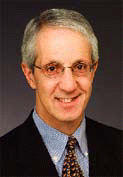A lot of people look at a specialist as a technician… I believe that technology has taken us away from the patient’s story. And once you remove yourself from the patient’s story you no longer are truly a doctor. -Myron Falchuk, MD, in How Doctors Think by Jerome Groopman, MD
Explore This Issue
March 2008If primary care physicians are to be believed, home is where the patient is-the Patient-Centered Medical Home (PC-MH), that is. The combined 333,000 members of the American College of Physicians (ACP), American Academy of Pediatrics (AAP), American Academy of Family Physicians (AAFP), and American Osteopathic Association (AOA) have closed ranks behind the medical home-a practice-based model anchored on a personal physician providing and coordinating health care for his or her pediatric or adult patients. PC-MH proponents argue that medicine’s dwindling cadre of generalists is reimbursed inadequately-or not at all-for coordination and tracking of care, adding that pay-for-performance schemes won’t help because they boost revenue incrementally rather than changing a fundamentally flawed reimbursement system. The PC-MH is designed to address all that.
PC-MH’s core assumption is that primary care physicians (PCPs) coordinating care across settings will improve health outcomes and lower costs. The concept being promoted currently puts tools including care coordination, care management, health information technology, patient education, and access to 24/7 coverage into PCPs’ hands (see sidebar, Practice Readiness for the Medical Home).
Michael Barr, MD, MBA, the American College of Physicians’ Vice President for Practice Advocacy and Improvement, explained that the medical home is very complex, and we’ve got aggressive timelines to its implementation. The step-by-step blueprint to patient-centered care can help even a one- or two-person medical practice accomplish elements of the medical home.
In describing how it would affect specialists, Dr. Barr eschewed any similarity between the medical home and gatekeeping. The medical home doesn’t involve global capitation, which rewards PCPs for not referring to specialists. Instead, it builds on FFS [fee-for-service] and rewards enhanced primary care performance. It will benefit specialists because referrals will be tracked improved, and information between PCP and specialists will be better organized through computer technology, said Dr. Barr.
Otolaryngologist Howard Hessan, MD, a solo practitioner in Ellicott City, MD, who works with many PCPs, said the PC-MH concept sounds interesting and desirable. With reimbursement pressures, PCPs have no time to spend with their patients. Sometimes they refer to an ENT or other specialist when they can do the work themselves just because they have no time. That is not proper care. Better reimbursement for PCPs will be great for everyone, he said.

Leave a Reply